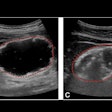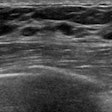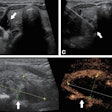Ovarian cancer screening including transvaginal ultrasound doesn't appear to reduce the risk of death, according to a study to be published online June 8 in the Journal of the American Medical Association. The study will also be presented at this week's American Society of Clinical Oncology (ASCO) annual meeting in Chicago.
Dr. Saundra Buys, from the University of Utah, and colleagues used ovarian cancer-specific mortality data collected from the Prostate, Lung, Colorectal, and Ovarian Cancer Screening Trial (PLCO) to evaluate the effect of screening for ovarian cancer.
Buys' study included 78,216 women between the ages of 55 and 74 years, who were tracked at 10 screening centers across the U.S. between 1993 and 2001. Of the total cohort, 39,105 were assigned to undergo annual screening with the serum cancer antigen 125 (CA-125) test for six years, as well as transvaginal ultrasound for four years. Meanwhile, 39,111 did not receive these screening measures and instead underwent usual care. All women were followed for a maximum of 13 years for cancer diagnoses and death until 2010.
In the intervention group, 212 ovarian cancer cases were diagnosed; 176 cases were diagnosed in the usual care group. There were 118 deaths in the intervention group and 100 deaths in the usual care group.
All-cause mortality (not including deaths from ovarian, colorectal, and lung cancer) was similar in the two study groups, with 2,924 deaths in the intervention group and 2,914 deaths in the usual care group.
In the study, 3,285 women had false-positive results, and 1,080 (32.9%) underwent surgery for the removal of one or both ovaries as part of the diagnostic workup. Of these 1,080 women, 163 (15%) experienced a total of 222 distinct major complications, which yielded a rate of 20.6 complications per 100 surgical procedures.
The study findings show that annual screening for ovarian cancer -- as performed in the PLCO trial with simultaneous CA-125 and transvaginal ultrasound -- does not reduce disease-specific mortality in women at average risk for ovarian cancer, but it does increase invasive medical procedures and associated harms, the researchers concluded.
"More ovarian cancers were diagnosed in the screened group than in the usual care group, suggesting that some of the additional cancers detected by screenings were not clinically important and, if left undetected, may never have caused any symptoms or affected the women during their lifetimes," they wrote.




















